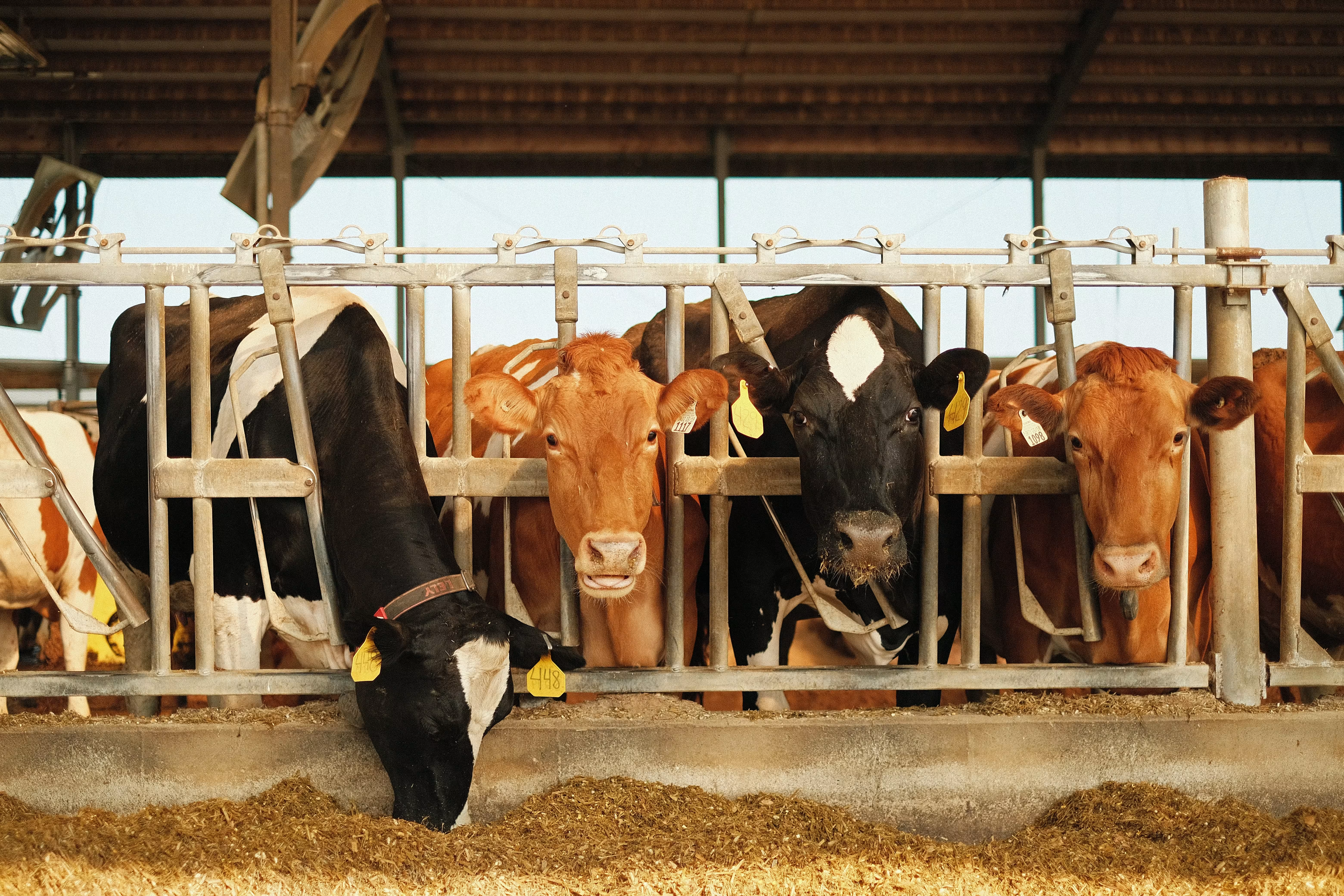




Dairy ads sell us on the fiction that milk does a body good. The truth is, unless you’re a baby cow, dairy doesn’t do anybody good.

All mammals produce milk to nourish their babies. But only us humans continue drinking milk into adolescence and adulthood. We’re also the only species to drink milk produced by and for other species. Humans have grown particularly dependent on cow’s milk, which we call dairy. Cow’s milk fuels growth naturally—for baby cows. But for humans, dairy fuels a range of unnecessary health risks.
Why is milk bad for you?
Lactose intolerance
Past infancy, it’s perfectly natural for our bodies to reject milk. That’s why most adults—68% of us—experience lactose intolerance, exhibiting diarrhea, gas, bloating, stomach aches, and general discomfort if we consume cow's milk. Funny to think how this so-called ”intolerance” suggests it’s normal to be lactose tolerant, when it’s actually the opposite. It's normal for our bodies not to tolerate cow's milk because we're not baby cows.
Acne
Bad skin doesn’t make you feel good about yourself, and that’s at best. At worst, acne can be quite painful. To relieve suffering, people try medicated ointments, exfoliants, injections, and even chemical peels. Meanwhile, preventing acne can be as simple as changing your diet. Studies show that consumption of dairy increases the likelihood of acne. And if you already have acne, dairy only makes it worse. On the flip-side, cutting out dairy completely has been shown to reduce or even eradicate acne.
Saturated fat
Saturated fat has long been linked to heart disease, and the biggest sources of saturated fat are animal products, especially dairy. A recent study published in The American Journal of Clinical Nutrition shows that risk of heart disease dropped up to 24% when saturated fats from dairy were replaced by healthy fats found in nuts, seeds, and avocados. The study concludes that “a healthy diet pattern tends to be plant-based and low in saturated fat.” Ditching dairy in favor of plant-based alternatives is a healthier choice for your heart.
Increased cancer risk
Numerous alarming studies have linked dairy to various cancers. In fact, one recent study shows it doesn’t even take excessive amounts of dairy to increase the risk of breast cancer—“usual consumption” is more than enough. Multiple studies have shown that the risk of prostate cancer is even greater. Meanwhile, risks of these and other cancers, even skin cancer, are shown to be decreased simply by eating more fruits and vegetables. In short, the greatest risk of ditching dairy is discovering how much better plant-based alternatives can make you feel.
Climate change
By far the biggest health risk to each of us and all life on our planet is climate change. Animal agriculture is a leader in greenhouse gas emissions, and the worst offenders are beef and dairy production. Cows generate vast amounts of methane, which heats the atmosphere 86 times faster than carbon dioxide (CO2), and nitrous oxide, which cooks the atmosphere 300 times faster. Whereas CO2 takes up to 1,000 years to dissolve, methane disappears in only 12 years and nitrous oxide in just over a hundred.
While forests could help absorb CO2 in the nearer term, the world is running out of trees—thanks to cattle farming. Already over one-third of our planet’s habitable land is used for animal agriculture. Yet, increased cattle farming continues to accelerate deforestation. These impacts show that what we eat and drink matters far beyond our next meal. Cutting dairy from your diet is perhaps the easiest way to help ensure a healthy future for everyone.

Giving up dairy without giving up milk
The good news is, you can give up dairy without giving up milk (or cheese or ice cream). While plants and nuts don’t lactate, they do produce milk. All plant-based milks have far less fat and fewer calories than cow’s milk, and most have fewer carbs as well.
Oat milk
The cream of the crop. While brands vary, oat milk tends to be the thickest and creamiest of all the plant milks. Oat milk is also the greenest—no, not in terms of actual color, but in terms of lowest carbon emissions, water usage, and ecological impact associated with production. Oat milk is the most eco-friendly milk. All that, plus, it's especially great in coffee!
Almond milk
The most popular plant-based milk is far lower in calories than cow’s milk and much higher in calcium. Though it might seem new, almond milk has been a favorite for centuries.
Soy milk
A tried and true favorite, soy milk dates back to ancient China. It was first introduced to the US in the 1920s as a “much cleaner” alternative to cow’s milk. Soy milk not only offers as much protein as cow’s milk, but twice the iron, half the calories, and a fraction of the fat.
Don’t pick just one
Oat, almond, and soy are just the three most popular and easily found plant-based milks. Other tasty alternatives are made from cashews, pistachios, hemp seeds, yellow peas, and more. These healthier plant-based alternatives are now available at virtually every brick-and-mortar or online grocer.
What you can do
With so many delicious plant-based milks widely available, giving up dairy is easier than ever. Whenever you would have normally used cow’s milk, choose plant-based milk instead. A healthier world starts in your coffee, tea, cereal, or smoothie.
Your health is just one of many reasons to eat more compassionately. The Humane League can help guide you with these easy steps.
Feeling inspired? Join our movement to help nurture a healthier and more compassionate world for everyone.





